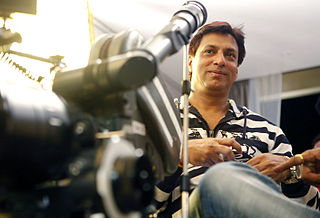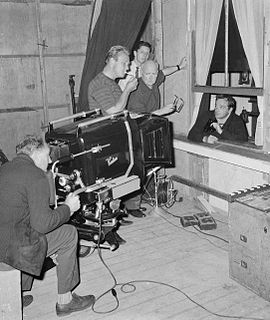A Quote by Bruce Willis
Cinema has no boundaries...we all belong to the same artistic community.
Quote Topics
Related Quotes
Everything has boundaries. the same holds true with thought. you shouldn't fear boundaries, but you also should not be afraid of destroying them. that's what is most important if you want to be free: respect for and exasperation with boundaries. what's really important in life is always the things that are secondary.
A film in which the speech and sound effects are perfectly synchronized and coincide with their visual image on the screen is absolutely contrary to the aims of cinema. It is a degenerate and misguided attempt to destroy the real use of the film and cannot be accepted as coming within the true boundaries of the cinema.
Cinema is consistently making a claim to particular memories, histories, ways of life, identities, and values that always presuppose some notion of difference, community, and the future. Given that films both reflect and shape public culture, they cannot be defined exclusively through a notion of artistic freedom and autonomy that removes them from any form of critical accountability.
I think what I loved in cinema - and what I mean by cinema is not just films, but proper, classical cinema - are the extraordinary moments that can occur on screen. At the same time, I do feel that cinema and theater feed each other. I feel like you can do close-up on stage and you can do something very bold and highly characterized - and, dare I say, theatrical - on camera. I think the cameras and the viewpoints shift depending on the intensity and integrity of your intention and focus on that.
It is the business of thought to define things, to find the boundaries; thought, indeed, is a ceaseless process of definition. It is the business of Art to give things shape. Anyone who takes no delight in the firm outline of an object, or in its essential character, has no artistic sense. He cannot even be nourished by Art. Like Ephraim, he feeds upon the East wind, which has no boundaries.



































